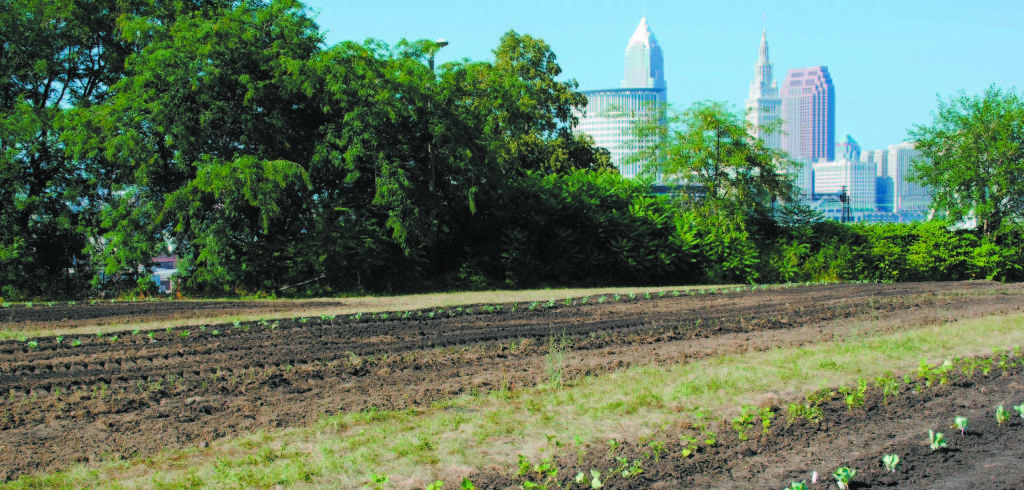CWRU’s Farm Food Program to tackle Cleveland’s food deserts
February 21, 2014
The University Farm, made up of The Squire Valleevue and Valley Ridge Farms in Hunting Valley, Ohio, is striving to help alleviate food deserts one garden at a time.
It will launch a Kickstarter campaign next Monday to raise funds for a pilot program designed to address the problem and bring more helping hands to the farm.
“It is our first foray into food deserts,” explained Chris Bond, farm horticulturalist and coordinator of the Farm Food Program. “We already offer farmers markets but they usually don’t serve those in deserts.”
Food deserts often appear in low income urban areas with limited or nonexistent access to fresh produce and nutritious foods. Cleveland has a several identifiable food deserts, some within walking distance of Case Western Reserve University’s campus.
The project aims to bring five additional workers, ideally unemployed people, from the food deserts near campus, to the farm during the most labor intensive time of year, June through fall. In addition to a wage, the participants will receive roughly $40 in fresh produce each week to bring home to their families.
Bond hopes that by planting, maintaining and harvesting crops at the farm, the participants will learn how to grow their own gardens and transfer their new horticultural skills to their own neighborhoods. The project will also bring in chefs and instructors to teach the participants how to eat locally and prepare fresh, nutritious foods.
“It won’t stamp out food deserts, but if you can show a few people how to grow food and learn a skill, it can help five individuals, and five families, improve their neighborhoods,” Bond said.
Emphasizing the goal of the project, Bond said, “It gives people an opportunity they might not have otherwise had to have access to healthy food that they can prepare. It’s like ‘teach a man to fish versus give a man a fish.’”
The Kickstarter project aims to raise $32,000, enough money to hire five workers for 20 hours a week over 18 weeks. Additional money will allow the farm to offer more hours, extend the season or hire another worker.
Bond called the Kickstarter a “unique undertaking” for the university and farm. To complement the novel project, the first pledge level offers a unique benefit: Donors can name a bee from one of the farm’s hive and receive a certificate to prove it.
Bond is optimistic that the Kickstarter campaign will succeed. “Maybe it won’t put a dent in the problem, but it can be part of the solution. We want to do whatever we can and the pilot program is a seed. If successful, we can do more.”



